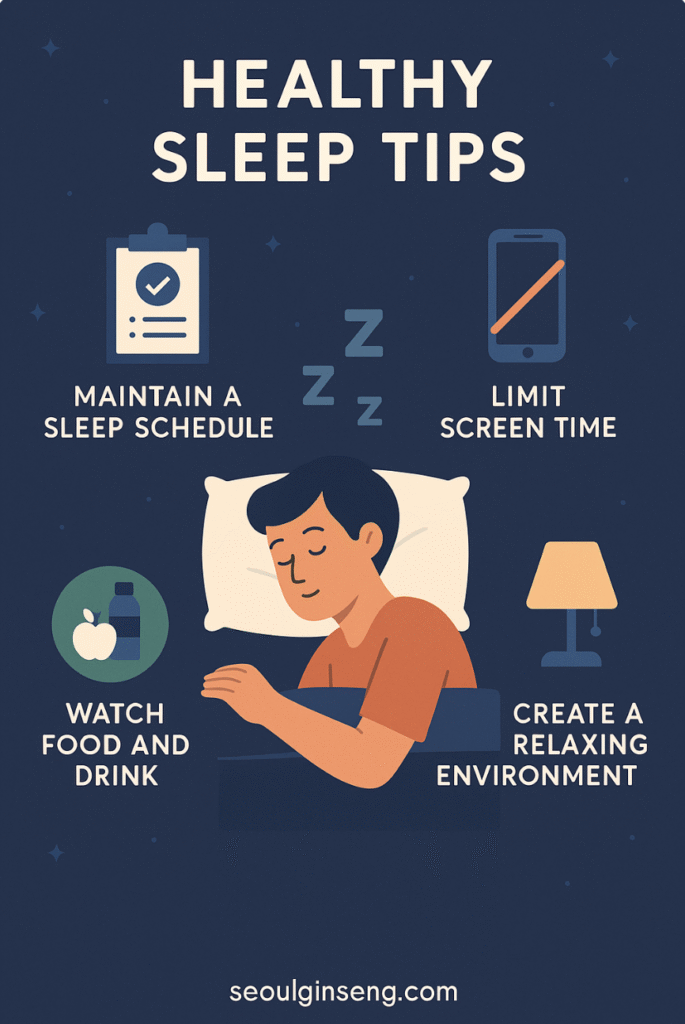Sleep is one of the most critical pillars of human health, yet it is often undervalued in our fast-paced society. From cognitive function to immune defense, almost every system in the body relies on adequate rest. Chronic sleep deprivation has been linked to cardiovascular disease, diabetes, obesity, weakened immunity, and even reduced life expectancy. This article provides an evidence-based exploration of sleep health, including its biological role, the consequences of poor rest, and practical strategies for achieving restorative sleep.
🧠 Why Sleep Is Essential
During sleep, the body undergoes vital processes:
- Memory consolidation: The brain organizes and stores new information.
- Cellular repair: Tissues repair themselves, and hormones that promote growth and recovery are released.
- Immune regulation: Adequate sleep strengthens immune response, lowering the risk of infections.
- Emotional balance: Sleep stabilizes mood and reduces stress, contributing to better mental health.
The National Sleep Foundation recommends 7–9 hours of sleep per night for adults, though individual needs vary.
⚠️ Risks of Sleep Deprivation
Poor or insufficient sleep can have both short- and long-term health impacts:
- Cognitive decline: Impaired focus, reduced decision-making ability, and slower reaction times.
- Metabolic issues: Increased risk of type 2 diabetes and obesity due to hormonal imbalances affecting appetite.
- Heart disease: Sleep deprivation raises blood pressure and contributes to cardiovascular strain.
- Weakened immunity: Even a single night of poor sleep can reduce immune cell activity.
Studies show that chronic sleep loss is associated with increased mortality risk, underlining its role as a non-negotiable health factor.
🌿 Practical Strategies for Better Sleep
To build healthier sleep habits, experts suggest the following evidence-based practices:
- Maintain a Consistent Sleep Schedule
- Go to bed and wake up at the same time daily, even on weekends.
- Limit Screen Time Before Bed
- Blue light from phones and computers disrupts melatonin, the sleep hormone. Aim to unplug at least 1 hour before bedtime.
- Watch What You Eat and Drink
- Avoid caffeine, alcohol, and heavy meals close to bedtime. Instead, opt for light snacks if hungry.
- Create a Relaxing Environment
- A cool, dark, and quiet bedroom helps signal the body that it’s time to sleep. Relaxation routines, such as reading or meditation, can also prepare the mind for rest.
🩺 When to Seek Medical Advice
If insomnia, snoring, or excessive daytime fatigue persists, it may indicate a sleep disorder such as sleep apnea or restless legs syndrome. In such cases, consulting a healthcare professional is crucial for accurate diagnosis and treatment.
🌍 Sleep and Global Health
Sleep is a universal human need, yet modern lifestyles—marked by long work hours, stress, and constant digital stimulation—are eroding sleep quality worldwide. Public health campaigns now emphasize sleep alongside nutrition and exercise as a cornerstone of wellness.
For more resources on sleep health, visit:
✅ Conclusion
Sleep is not a luxury—it is a biological necessity. Prioritizing healthy sleep habits enhances cognitive performance, strengthens immunity, and supports long-term well-being. By creating a structured sleep routine and reducing disruptions, anyone can significantly improve their quality of life.
🇰🇷 Premium Korean Ginseng Online Shop







